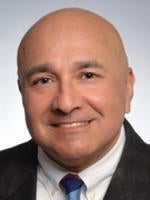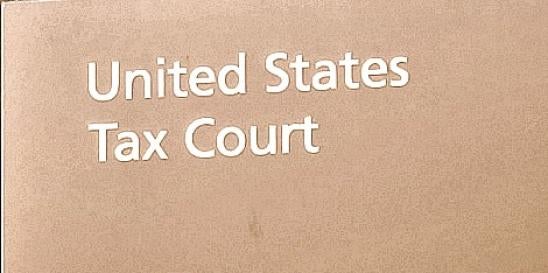On November 28, 2023, the Tax Court ruled in Soroban Capital Partners, L.P. v. Commissioner[1] that limited partners in a New York hedge fund could be subject to self-employment tax on their distributive share of partnership net income if they are actively involved, notwithstanding the Section 1402(a)(13)[2] “limited partner” exception. In doing so, the Tax Court agreed with the IRS that the statutory “limited partner” exception does not apply to an “active” limited partner of a state-law limited partnership, as determined under a functional analysis of the limited partner’s roles and activities.
For purposes of determining an individual’s obligation to pay self-employment taxes under the Self Employment Contributions Act (SECA)[3], Section 1402(a) of the Code defines “self-employment income” as “net earnings from self-employment” which, in turn, is defined as “. . . the gross income derived by an individual from any trade or business carried on by such individual, less the deductions allowed by this subtitle which are attributable to such trade or business, plus his distributive share (whether or not distributed) of income or loss . . . from any trade or business carried on by a partnership of which he is a member. . .” However, Section 1402(a)(13) excludes from this definition “. . . the distributive share of any item of income or loss of a limited partner, as such, other than guaranteed payments described in section 707(c) to that partner for services actually rendered to or on behalf of the partnership to the extent that those payments are established to be in the nature of remuneration for those services. . .” (Emphasis added.) Section 1402(a)(13) does not define the phrase “limited partner, as such,” which was the focus of the Soroban ruling.
The Soroban limited partnership had filed a motion for summary judgment requesting the Tax Court to hold that its limited partners’ distributive shares of the partnership’s ordinary income items should be excluded from self-employment income because, as limited partners in a state law limited partnership, they benefited from the Section 1402(a)(13) exception. The IRS disagreed, arguing that a functional analysis was necessary to determine whether the limited partner was an “active” limited partner that would not benefit from the exception. The Tax Court then analyzed the legislative history of the Section 1402(a)(13) exception, the controversial 1997 proposed Treasury Regulations that applied a factual approach to whether a partner could be considered a “limited partner,” and previous Tax Court cases addressing what constitutes a “limited partner.”[4] The court concluded that when Congress added the phrase “as such” it meant that the exception does not apply to a partner “who is limited in name only” and who is not actually functioning as a passive investor. In denying Soroban’s motion for summary judgment, the court found that Congress intended for the limited partner exception to apply to earnings of an investment nature and therefore, determining whether the exception applied “necessarily requires an inquiry into the functions and roles of the limited partners.”
The Soroban ruling follows several cases in which the IRS has successfully challenged the application of the limited partner exception by active owners of various types of passthrough entities, including LLPs and LLCs.[5] However, the Tax Court’s decision in Soroban represents the first time a court has ruled on whether an active limited partner of a state-law limited partnership can claim the limited partner exception. Two pending petitions filed in 2023 involve managers of funds that are also contesting the IRS’ position that limited partners are not automatically excluded from self-employment tax on their distributive shares of partnership income.[6]
The IRS has been aggressive in pursuing self-employment tax audits for limited partnerships, LLCs, LLPs, and LLLPs since initiating a SECA tax “compliance campaign” in 2018. Under Soroban, it appears the IRS can require that any active limited partner pay self-employment tax. That could change upon subsequent appeals or decisions, but it will take time, and in the meantime, it seems highly likely that the IRS will issue guidance on the heels of this case. Therefore, the benefit of using a limited partnership to minimize self-employment tax is in doubt. For now, the safest course may be for an active limited partner to pay self-employment tax on their distributive share of income from the corresponding limited partnership.
[1] See link to case here.
[2] All Section references are to the Internal Revenue Code of 1986, as amended.
[3] For 2023, the self-employment tax rate is a 12.4% Social Security tax on the first $160,200 of net self-employment income and a 2.9% Medicare tax on all self-employment income.
[4] The Tax Court cited Renkemeyer v. Commissioner, 136 T.C. 137 (2011)(applying a functional analysis test with respect to an LLP) and Castigliola v. Commissioner, T.C. Memo, 2017-62 (finding that attorneys who were member-managers of a PLLC law firm were not limited partners for purposes of Section 1402(a)(13) because they participated in control of the PLLC’s business).
[5] See Renkemeyer and Castigliola, above; and Riether v. United States, 919 F. Supp. 2d 1140 (D.N.M. 2012)(LLC).
[6] Point72 Asset Management, LP v. Commissioner, Dkt. No. 12752-23 (hedge fund); Denham Capital Management LP v. Commissioner, Dkt. No. 9973-23 (private equity fund).





 i
i


